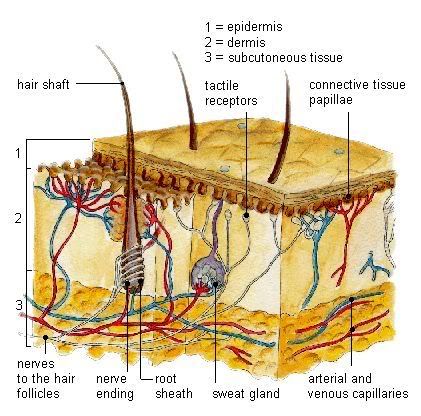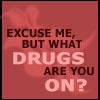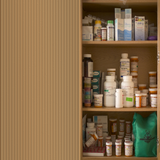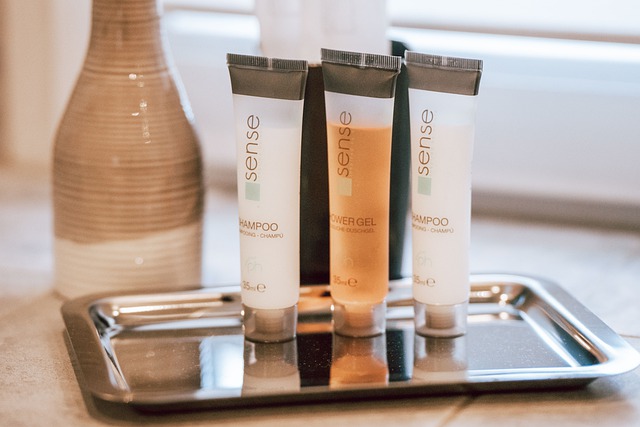Did you know that the lining of your digestive tract and your skin are not only made of the same types of cells, but function in much the same way?  Epithelial cells (skin cells) serve to create a barrier to keep out bacteria while letting smaller chemicals into the system. In the digestive tract the smaller chemicals they let in are our broken down foods. But as we all know much larger chemicals like penicillin, aspirin, and a zillion other drugs also pass right through the walls of the digestive tract.
Epithelial cells (skin cells) serve to create a barrier to keep out bacteria while letting smaller chemicals into the system. In the digestive tract the smaller chemicals they let in are our broken down foods. But as we all know much larger chemicals like penicillin, aspirin, and a zillion other drugs also pass right through the walls of the digestive tract.
We like to think that our outer skin just keeps outside things out and inside thing in, but it doesn’t. Inside  things come out constantly through our sweat and oil glands – so much so that our skin acts as our third kidney. Well outside things come in through our skin just as easily. That is why you can get chemical poisoning just by spilling chemicals on your skin. In fact your skin is even more vulnerable to outside chemicals than your digestive tract because inside your gut you have acid and enzymes to try to break down and chemicals before they are absorbed into the system. Your skin has no such protection.
things come out constantly through our sweat and oil glands – so much so that our skin acts as our third kidney. Well outside things come in through our skin just as easily. That is why you can get chemical poisoning just by spilling chemicals on your skin. In fact your skin is even more vulnerable to outside chemicals than your digestive tract because inside your gut you have acid and enzymes to try to break down and chemicals before they are absorbed into the system. Your skin has no such protection.
So what happens when you put different drugs onto your skin? That’s right, they get absorbed. So if you stop to think about it – if you wouldn’t want to eat something, then you certainly wouldn’t want to put it on your skin.  So how many of your bathroom/household products would you want to eat? Let’s consider your shampoos, conditioners, soaps, hand sanitizers, body wash, mouth wash, bubble baths, baby wipes, exfoliants, deodorants and/or antiperspirants, any lotions and creams including those for shaving, hair products, sun screens, perfumes and colognes, powders, toothpaste and cosmetics including nail polish. These things are full of toxic, cancer causing, hormone disrupting chemicals that can be absorbed through your skin.
So how many of your bathroom/household products would you want to eat? Let’s consider your shampoos, conditioners, soaps, hand sanitizers, body wash, mouth wash, bubble baths, baby wipes, exfoliants, deodorants and/or antiperspirants, any lotions and creams including those for shaving, hair products, sun screens, perfumes and colognes, powders, toothpaste and cosmetics including nail polish. These things are full of toxic, cancer causing, hormone disrupting chemicals that can be absorbed through your skin.
Because these things are not considered food, they are largely unregulated. Buying organic is no help because there are no regulatory standards for non-food organic products to not be toxic. Nature is full of toxic organic products. I could make a face cream out of poison oak oil that would be fully organic – would you want to use it? I think not. How about the popular wild yam cream – a source of progesterone hormone for menopausal women – do you think that might be a problem for a growing child – how about for a guy? The same is true for estrogen like chemicals… plus they promote breast cancer.
because there are no regulatory standards for non-food organic products to not be toxic. Nature is full of toxic organic products. I could make a face cream out of poison oak oil that would be fully organic – would you want to use it? I think not. How about the popular wild yam cream – a source of progesterone hormone for menopausal women – do you think that might be a problem for a growing child – how about for a guy? The same is true for estrogen like chemicals… plus they promote breast cancer.
Our world is full of powerful chemicals that mimic hormones like estrogen or disrupt our normal hormone pathways such as our thyroid, our sex hormones, growth and repair hormones, and energy pat hways. These things really mess with our health. So lets pull out the stuff in your bathroom and start reading labels… because if you are using any of these chemicals on your skin, they are going right into your bloodstream and affecting every part of your body.
hways. These things really mess with our health. So lets pull out the stuff in your bathroom and start reading labels… because if you are using any of these chemicals on your skin, they are going right into your bloodstream and affecting every part of your body.
* Parabens – highly estrogen-like hormone disruptors
o methyl paraben
o ethyl paraben
o propyl paraben
o butyl paraben
o isobutyl paraben
o E216
* Phthalates – potent hormone disruptors especially effecting babies and children
o DBP (dibutyl phthalate)
o DEP (diethyl phthalate)
o PVC (polyvinyl chloride)
* Aluminum salts – estrogenic and toxic, often found in deodorants/ antiperspirants.
* Sodium laureth / (Sodium) lauryl sulfate – skin irritant, potential carcinogen –
go to the Environmental Working Group site on skin products for other names this product goes under: EWG Skin Deep
* Diethanolamine (DEA)
– skin irritant, potential carcinogen
o Cocamide DEA
o Cocamide MEA
o DEA-Cetyl Phosphate
o DEA Oleth-3 Phosphate
o Lauramide DEA
o Linoleamide MEA
o Myristamide DEA
o Oleamide DEA
o Stearamide MEA
o TEA-Lauryl Sulfate
o Triethanolamine
* Hexachlorophene – highly toxic and banned in many jurisdictions
* triclosan – thyroid endocrine disruptor, toxin that bioaccumulates
So what should you do if you find your products contain these chemicals? Probably throw them out, at the very least don’t buy them any more. There are non-chemical alternatives for most of these and I would urge you to seek these out. Try health food stores,  internet sources, or even make your own for pennies on the dollar. We pay huge amounts of money for the convenience of having someone else mix up products for us – which is fine until they start putting poisons in the products. If we want our products not poisoned we sometimes have to give up the convenience.
internet sources, or even make your own for pennies on the dollar. We pay huge amounts of money for the convenience of having someone else mix up products for us – which is fine until they start putting poisons in the products. If we want our products not poisoned we sometimes have to give up the convenience.

